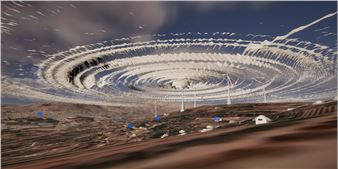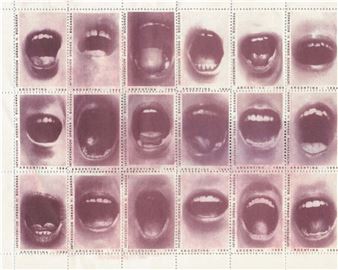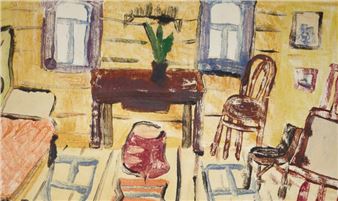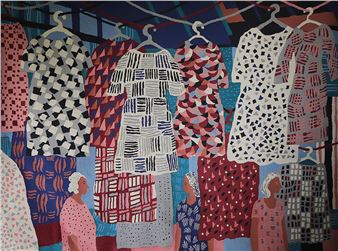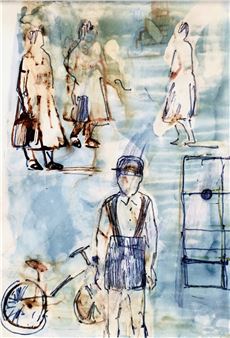Videobrasil. Needs No Translation. Four Decades of Video and Performance
The first Videobrasil Festival was held in São Paulo in 1983. It was a showcase of young art in a country that was increasingly confident of its place on the cultural map of the world. From the outset, Videobrasil gave a special place to artists and filmmakers from the so-called Global South. A new era was dawning as alternative geopolitical poles emerged to replace the old division of the world into socialist and capitalist camps. The Festival has always been most interested in those places on the world map—South-East Asia, Africa, Eastern Europe—where life changes rapidly, as it does in Latin America. Over time, this interest has led to the emergence of a major institution, Associação Cultural Videobrasil, which is dedicated to the display, archiving, popularisation, and research of non-conventional forms of screen culture.
The exhibition Videobrasil. Needs No Translation marks key milestones in the development of video art through works presented in the Festival programme over the years and today preserved in the Videobrasil Historical Collection. This multi-layered narrative, consisting of four chronological sections, brings together the themes and techniques that artists have employed to respond to key events of the turn of the 20th and 21st centuries. The authors explore the different languages of video and their relationship to performance, engaging in dialogue with the cinematic traditions of different countries and focusing particularly on local narratives—the traumatic experiences of the colonial past and the consequences of socio-political cataclysms that have shaped the identity of the Global South today.

Recommended for you
The first Videobrasil Festival was held in São Paulo in 1983. It was a showcase of young art in a country that was increasingly confident of its place on the cultural map of the world. From the outset, Videobrasil gave a special place to artists and filmmakers from the so-called Global South. A new era was dawning as alternative geopolitical poles emerged to replace the old division of the world into socialist and capitalist camps. The Festival has always been most interested in those places on the world map—South-East Asia, Africa, Eastern Europe—where life changes rapidly, as it does in Latin America. Over time, this interest has led to the emergence of a major institution, Associação Cultural Videobrasil, which is dedicated to the display, archiving, popularisation, and research of non-conventional forms of screen culture.
The exhibition Videobrasil. Needs No Translation marks key milestones in the development of video art through works presented in the Festival programme over the years and today preserved in the Videobrasil Historical Collection. This multi-layered narrative, consisting of four chronological sections, brings together the themes and techniques that artists have employed to respond to key events of the turn of the 20th and 21st centuries. The authors explore the different languages of video and their relationship to performance, engaging in dialogue with the cinematic traditions of different countries and focusing particularly on local narratives—the traumatic experiences of the colonial past and the consequences of socio-political cataclysms that have shaped the identity of the Global South today.
Artists on show
- Alfredo Nagib
- Ariel Pumares
- Armando Queiroz
- Bakary Diallo
- Cao Guimarães
- Cathy Vogan
- Diana Kapizova
- Dmitry Bulnygin
- Dominik Barbier
- Eder Santos
- Elena Kovylina
- Eletroagentes
- Ezra Wube
- Guevara & Diego Piñeros García
- Guia Rigvava
- Guillermo Casanova
- Leandro Pérez
- Ludmila Gorlova
- Luiz Roque
- Marcellvs L.
- Marcelo Valiente
- Marina Abs
- Miguel Mitlag
- Natalia Skobeeva
- Otávio Donasci
- Paulo Nazareth
- Pedro Sousa Vieira
- Rivane Neuenschwander
- Sandra Kogut
- Sergei Shutov
- Tadeu Jungle
- Timur Petrovich Novikov
- TVDO
- Viktor Alimpiev
- Vitória Cribb
- Wagner Morales
- Walter Silveira

 ARTISTS
ARTISTS







